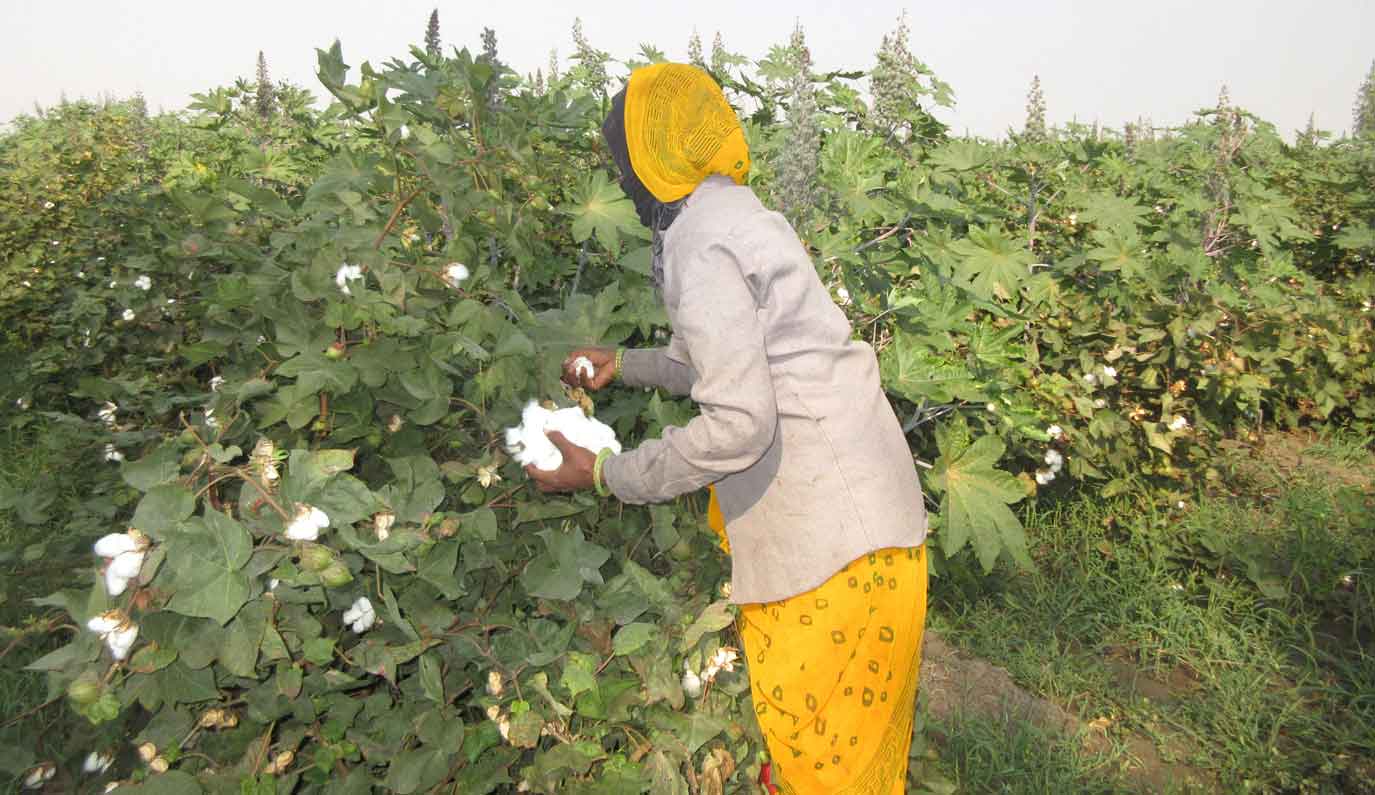
By Kshitij Gupta, AIDMI, India
In recent years, the impact of climate change has become increasingly evident, with heatwaves emerging as a significant threat to human health, agricultural yields and economic productivity. Small-scale women cotton farmers in the states of Gujarat, Maharashtra, and Madhya Pradesh have been particularly vulnerable to the adverse effects of these extreme weather events such as heatwaves. Recognizing the importance of addressing this issue, the All India Disaster Mitigation Institute (AIDMI) has employed a unique approach called Appreciative Inquiry to assess the vulnerability of these farmers and explore potential solutions.
Appreciative Inquiry is a strength-based approach that focuses on identifying and leveraging the positive aspects of a situation rather than dwelling on problems. Instead of highlighting deficiencies, it seeks to uncover existing strengths, best practices, and success stories that can be built upon (Cooperrider & Whitney, 2005). In this context, AIDMI conducted a series of consultations and Key Informant Interviews (KIIs) with small-scale women cotton farmers and members of the Self-Employed Women’s Association (SEWA).
Through these interactions, AIDMI gained valuable insights into the challenges faced by these farmers during heatwaves. Heatwaves have disrupted farming cycles, adversely impacting their health and crop yields. However, the study also revealed the traditional wisdom and coping mechanisms employed by these women to mitigate the effects of heatwaves. For instance, they have adopted practices such as consuming onions, wearing light-coloured clothing, and limiting outdoor activities during extreme heat.
While these traditional methods have provided some relief, the study highlighted the lack of a structured and standardized approach to deal with heatwave situations in rural areas. The dissemination of information and guidelines from government sources has been hampered by the unavailability of network coverage and access to phones, leaving many farmers without the necessary resources to effectively prevent avoidable deaths.
By employing Appreciative Inquiry, AIDMI has been able to identify the existing strengths and resilience of these women farmers while also recognizing the gaps in their coping mechanisms. This approach has the potential to empower these communities by leveraging their traditional knowledge and integrating it with modern scientific practices and interventions.
For example, the appreciative inquiry process could lead to developing community-based early warning systems that incorporate traditional indicators and knowledge, coupled with modern weather forecasting techniques. Additionally, it could facilitate the creation of localized heat action plans that involve the active participation of women farmers, ensuring that the solutions are tailored to their specific needs and culturally appropriate.
Furthermore, the use of Appreciative Inquiry can foster collaborations between government agencies, non-governmental organizations (NGOs), and local communities. By recognizing the strengths and capabilities of each stakeholder, this approach can facilitate the co-creation of sustainable solutions that address the multifaceted challenges posed by heatwaves.
In conclusion, the use of Appreciative Inquiry by AIDMI in assessing the vulnerability of small-scale women cotton farmers to heatwaves has shed light on the importance of incorporating traditional knowledge and involving local communities in developing effective solutions. By leveraging their strengths and building upon their resilience, this approach has the potential to reduce the risk of heatwave-related deaths and enhance the overall well-being of these marginalized communities.
Reference:
Cooperrider, D. L., & Whitney, D. (2005). Appreciative inquiry: A positive revolution in change. Berrett-Koehler Publishers.
Disclaimer: The views expressed in this piece are those of the author/s and do not necessarily reflect the views or policies of AIDMI.